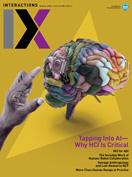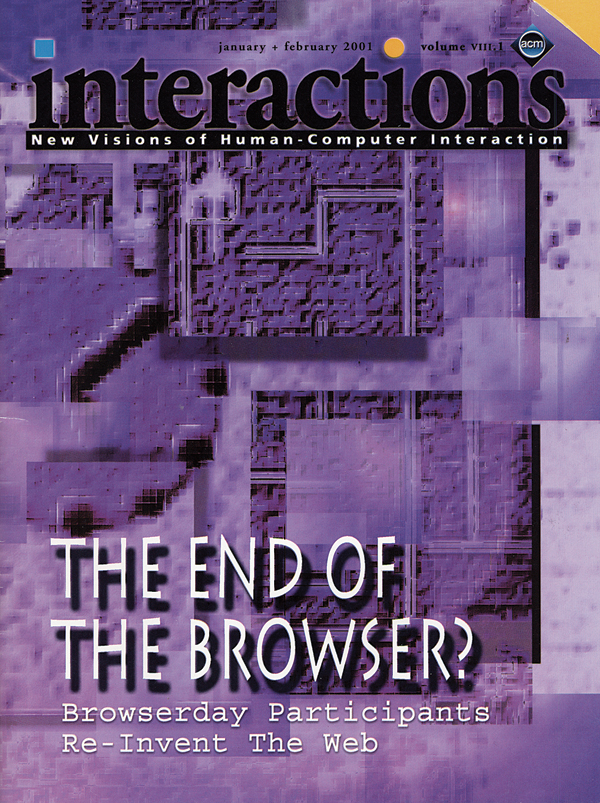Authors:
Marisa Campbell
IUI 2001 is the annual meeting of the intelligent interfaces community and serves as the principal international forum for reporting outstanding research and development on intelligent user interfaces. Talks during the conference will be given by an international group of researchers and practitioners. Tutorial Program 1. Intelligent User Interfaces Mark Maybury The MITRE Corporation Intelligent user interfaces (IUI) are human-machine interfaces that aim to improve the efficiency, effectiveness, and naturalness of human-machine interaction by representing, reasoning, and acting on models of the user, domain, task, discourse, and media (e.g., graphics, natural language, gesture). The tutorial will include animations…
You must be a member of SIGCHI, a subscriber to ACM's Digital Library, or an interactions subscriber to read the full text of this article.
GET ACCESS
Join ACM SIGCHIIn addition to all of the professional benefits of being a SIGCHI member, members get full access to interactions online content and receive the print version of the magazine bimonthly.
Subscribe to the ACM Digital Library
Get access to all interactions content online and the entire archive of ACM publications dating back to 1954. (Please check with your institution to see if it already has a subscription.)
Subscribe to interactions
Get full access to interactions online content and receive the print version of the magazine bimonthly.







Post Comment
No Comments Found